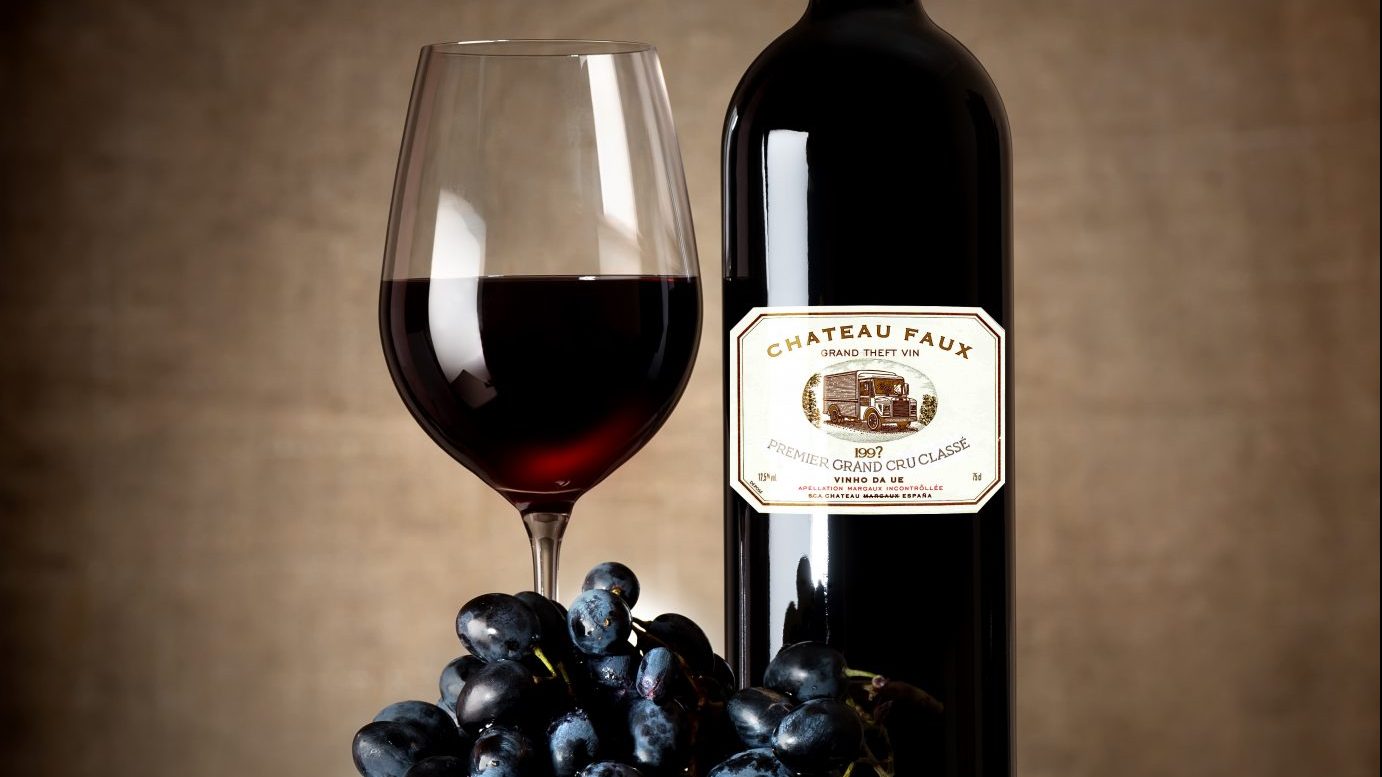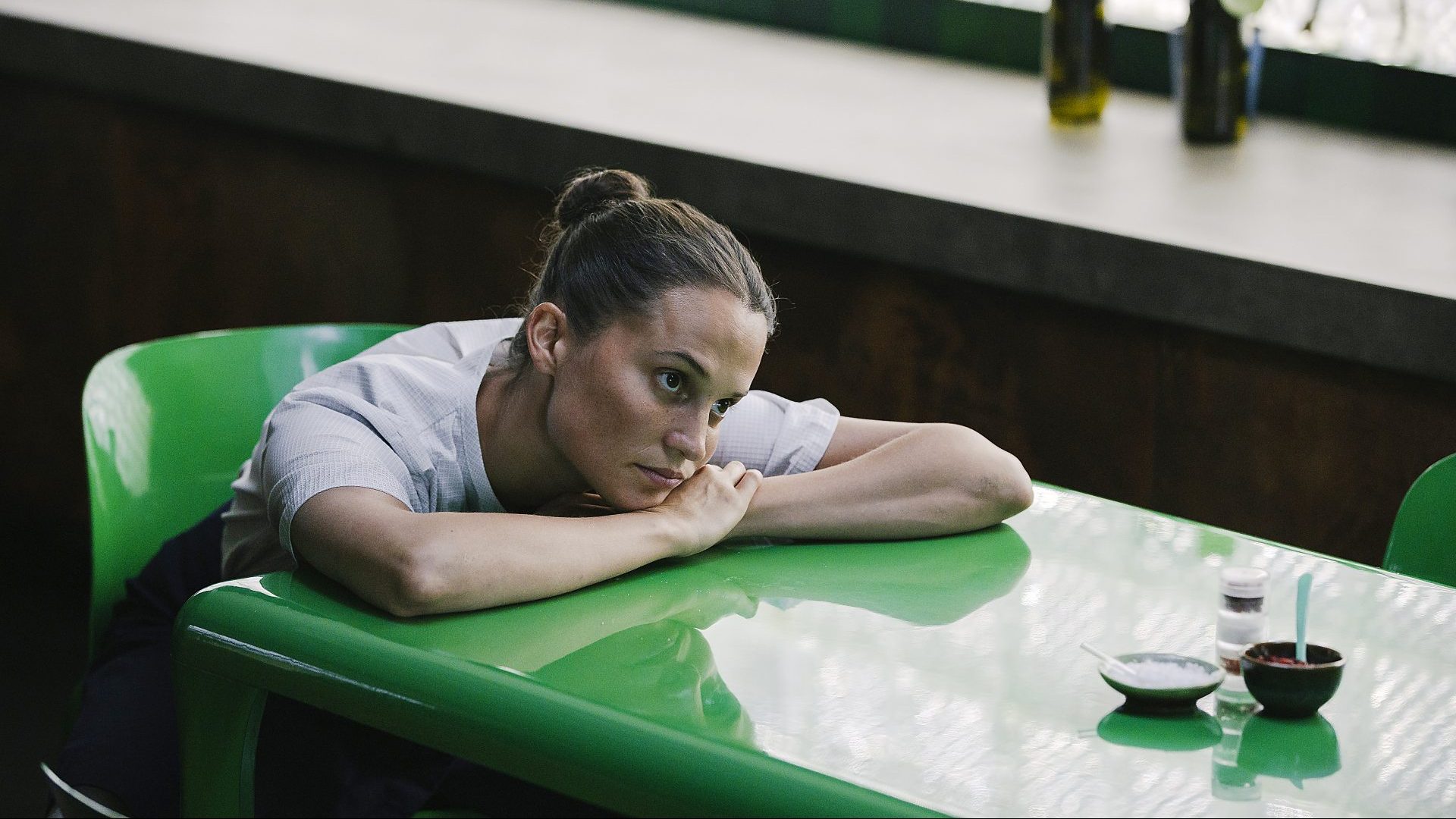In a French court, Chopin will soon face the music. That’s Didier Chopin, former owner of the eponymous champagne house and now a self-confessed fraudster responsible for almost 2m bottles of fake champagne.
Chopin originally denied the charges and fled to Morocco in 2023, but returned to France in January this year, where he and his wife, Karine, will go on trial in Reims on June 10.
Between June 2022 and April 2023, Chopin produced as many as 1.8m bottles of fake champagne – around 8,000 bottles a day – at a winery in Billy-Sur-Aisne, partly by carbonating Spanish bulk wine. In May, his then-manager Ludivine Jeanmingin alerted colleagues to the scam, confronted Chopin – and was fired.
But prior to her dismissal, Jeanmingin had gathered evidence in recordings and videos, and by making copies of trade and production documents. She even has a lab sample proving that Chopin’s fizz was not champagne. Now involved in a legal battle to gain official whistleblower status, she has become the heroine of this one particular episode in a long-running saga involving wine that is not what is said on the label.
“I am relieved that Chopin has finally acknowledged that he committed mass fraud, but he had no choice, considering all the evidence against him,” Jeanmingin told the New European.
Jeanmingin’s meticulous work has helped to reveal how fraudster wine industry insiders operate, even among the most elevated names and regions. Whether it be Bordeaux, Chianti, or Champagne, wine producers in Europe are fiercely protective of their appellations. Yet the European wine industry has been rocked in recent years by several fraud scandals, all involving Spanish bulk wine being falsely labelled and sold as appellation or table wine.
These could not have come at a worse time. Champagne and Bordeaux producers are facing the threat of what could amount to a US boycott of French wine, through the prospect of tariffs as high as 200%. Increasingly vulnerable to low yields resulting from uncertain weather and climate change, falling red wine consumption and exports, the wine industry is further threatened from fraudster wine trade insiders.
Indeed, the New European has learned of a new wine fraud case involving several prestigious Bordeaux châteaux.
Defrauded wine estates include Château du Tertre, a Grand Cru Classé estate in the Margaux appellation, two further Margaux estates, Château Mongravey, classed as Cru Bourgeois Exceptionnel, and Château Tayac and Château Haut Coteau located in Bordeaux’s St Estèphe appellation.
Fiona Brousseau, co-owner of the latter, said she became aware that something was wrong when a customer alerted her that her wine didn’t taste as it should. “The fraud ring used our name, taking advantage of our reputation, by making fake copies of our wine labels. We didn’t have to remove wines from the market as our wine was not used, just our labels,” she said.
Fraud cases have raised questions over the traceability and control of Spanish bulk wine in the EU single market; how it is transformed when moved from wineries to brokers, wine merchants, distributors, importers and retailers, before reaching the homes of wine drinkers.
“Rogue industry intermediaries are taking advantage of the large volumes of bulk wine that move across Bordeaux; even the big estates sell bulk. There is a lack of visibility in distribution, which is partly why we’re now selling wine directly to clients,” Brousseau said.
Speaking to the New European, a suspect in the fraud ring confirmed that he was under judicial investigation: “I delivered wine to clients who did whatever they pleased with it. Problems arise when you have dishonest clients,” he said.
The investigation, still in a pre-trial procedural stage, follows a police raid on June 27, 2022, involving around 100 officers in seven French departments including Gironde. It led to the arrest of 27 suspects. According to a French public prosecutor, the fraud is alleged to have involved “hundreds of thousands of bottles of wine”.
The suspected ringleaders are a wine distributor based in St Loubès and a wine trader who owns an estate in the Médoc, classified as “Cru Bourgeois” in early 2025.
Two alleged ringleaders and an accomplice were released two days after their arrest, on bail sums ranging from €20,000 to €50,000, and stand accused of money laundering through building work, and belonging to a fraud network that sold wine in France and further afield in Europe.
French supermarket chain Grand Frais said that following the arrests of the suspects, it had removed wines falsely labelled as Bordeaux. In the fake champagne case, two big French distributors including Scapest, which acts on behalf of supermarket Leclerc, are suing Chopin for damages after removing fraudulent bottles from circulation in 2023.
The demand for product delivered by any means necessary is said to stem from a shortage of grapes in the 2013 harvest. Dominiue Técher, a spokesperson for the agricultural trade union Confédération Paysanne, said: “Everyone knows how it was, in 2013, 2014, running out of wine. People gave orders saying ‘you get me some wine’. It’s an open secret.”
In another notorious recent case, Bordeaux’s biggest wine fraud to date, wine broker Michel Gilin blamed the grape shortage for his part in a scam that saw the equivalent of 4.5m bottles worth of Spanish bulk wine imported on 130 trucks, then bottled and labelled with fake Vin de France, Margaux and St Émilion wine labels.
Gilin was a former director of Cellier Vinicole du Blayais, the former subsidiary of the huge Tutiac wine cooperative in the Gironde. His partner in crime, Jean-Sebastien Laflèche, a wine merchant and logistics provider, falsified electronic transport documents online, seeming to justify the origin and nature of wine in the event of an inspection.
In January 2023, Judge Marie-Elisabeth Boulnois sentenced Gilin to 20 months’ imprisonment, but he did not go to jail – half was a suspended sentence, and the other half was served with an electronic tag. Gilin also received a €200,000 fine and a five-year ban from working in the wine business. Laflèche got a two-year term and a ban, but again escaped spending time in prison.
Also fined was winemaker Fabien Figerou, owner of Château Bégadanet, a historic wine estate in the Médoc, and the winery Les Chais de Bégadanet. French customs officers said that most of the fraud ring’s money was generated via Les Chais de Bégadanet. Nearly 205,000 fake bottles, filled at the winery between 2014 and 2016, generated €825,879 of the €1.24m estimated total profit. A Bordeaux commercial court officially closed the winery down in January 2025.
But none of these frauds happen in isolation. Reports of documents being manipulated to inflate grape yields and production volumes to facilitate the illicit blending of cheap bulk wine with appellations are commonplace in Spain, Portugal and Italy.
Castilla La Mancha, the world’s single largest wine region, supplies about a third of the world’s bulk wine, which is exported mainly to Germany, France, Italy and Portugal. That bulk wine is used entirely legally to make sparkling and still wine blends, as well as wine-based drinks.
In the context of falling red wine consumption globally, several producers in southern France, hit by drought and subsequent low yields, and consequently in economic peril, have said they would have to close if they did not use Spanish bulk wine in blends. The pattern is repeated across the EU; according to a report by the International Organisation of Vine and Wine (OIV), wine production in the bloc fell last year to 146.5m hectolitres, its lowest level since 2017.
Some take action in ways that, while legal, are viewed as questionable by experts. Faced with four consecutive drought harvests, Cava producers including Germany’s Henkell-Freixenet stand accused of undermining the traditional method of Cava production by resorting to the use of bulk wine in cheaper methods of making sparkling wines.
Reflecting a shortage of supply, grape prices in Catalonia have jumped to as much as €1 per kilo. That is at least, in some cases, double the price of bulk wine per litre sold in Castilla La Mancha.
Meanwhile, cheap Spanish bag-in-box wine sold as “EU wine” is undermining sales of quality production in the historic Portuguese wine regions, including the Douro Valley, according to producers. Over the past decade, bag-in-box wines have become ubiquitous in Portuguese bars and restaurants, served as the house wine, partly due to the cost-of-living crisis and changing packaging trends. Portuguese wine company Terreiro says 80% of its wine is sourced from Spain.
António Maçanita, a leading producer of fine, artisanal wines, says Portuguese growers and producers are losing out to an “economy of poverty” imposed by industrialised producers hell-bent on maintaining low prices. The Portuguese government is now on the verge of adopting new rules obliging bars and restaurants to list the origin of wines.
At the annual world bulk wine expo held in Amsterdam last November, traceability was the watchword on the lips of suppliers. Transparency around the adaptation of bulk wine, which is often traded between several companies before reaching consumers, is a cause for concern, with its impact on acidity and potential alcohol levels of wine.
In a nonchalant tone, Emiliano Soto, winemaker at the Manjavacas Cooperative located in Cuenca, Spain spelled out the extent of the problem: “They use Spanish bulk wine in France to freshen up tanks of wines from previous vintages. It’s the same in Italy. Everybody does it.”
The use of Spanish bulk wine in Italy is routinely compared with that of the olive oil trade, where Italian companies have bought millions of litres of olive oil and failed to state its Spanish origin.
Meanwhile, bautizando vinos, as it’s humorously known in Spain – the illegal christening of wines with water – is a cheaper way of cutting alcohol levels in light of the demand for low-alcohol wines.
Two industry sources in Spain, including a wine broker, told the New European that when yields are low, Italian wine companies blend Spanish white wine made from Pardina with Pinot Grigio, thus increasing the supply of the latter – a hugely popular wine around the world for which price is a key factor for consumers. But Carlo Flamini, director of Italy’s Osservatorio del Vino, dismissed any notion of fraudulent use of Spanish bulk wine in Italy: “Italian companies buy Spanish bulk wine and then sell it on to other markets,” he insisted.
Whatever the truth, there is widespread agreement that while the ability to secure supplies from across the EU is a boon for wine companies at the mercy of drought, frost, fires and flooding, European freedoms have also opened up the industry to abuse.
Fraud, be it consumer fraud or the illegal blending of bulk wine with appellation wine, has led to wine consumers being hoodwinked over the origin of wine. The wine you buy may not come from the country that its bottle or packaging suggests.
The illicit use of Spanish bulk wine and lack of control over wine movements in the EU single market is undermining the cultural identity of European wine regions that have shaped the world of wine through language, winemaking techniques, and appellations for centuries. In several European regions, wine growers are abandoning production, and thus Europe’s winemaking heritage, in droves.
Back in Champagne, Chopin’s admission of guilt has raised Jeanmingin’s hopes of winning her legal battle over unfair dismissal and of obtaining official whistleblower status at her appeal hearing at a court in Amiens on April 24.
“No one wanted to employ me, as they could not believe that champagne fraud of this magnitude was possible. Yet it is my gathering of evidence that has led to Chopin being finally brought to trial, so I deserve recognition as a whistleblower,” Jeanmingin said. “I hope to celebrate with real champagne very soon.”
This article was developed with the support of Journalismfund Europe
Barnaby Eales is a multilingual journalist based in Britain. Dominique Mesmin is an investigative journalist based in Paris



